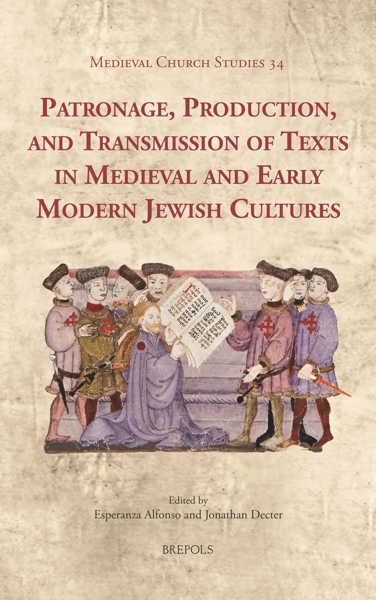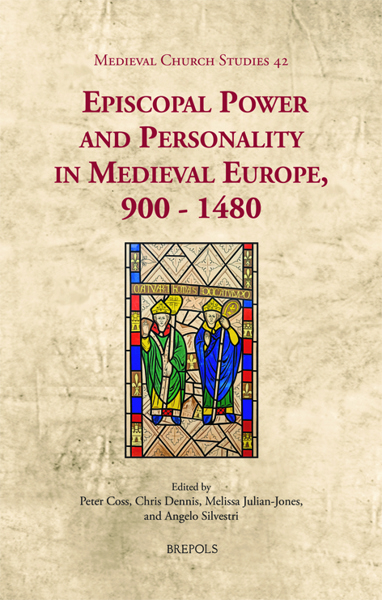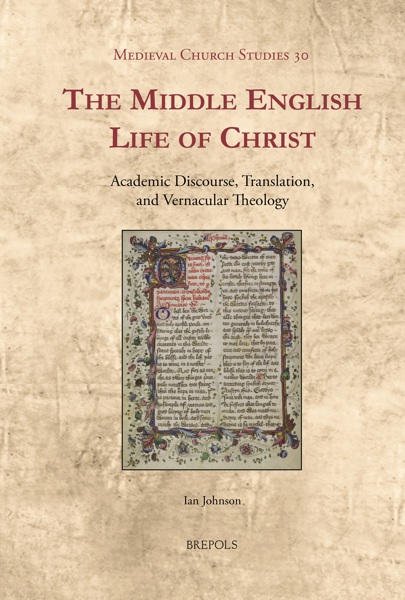
Episcopal Power and Personality in Medieval Europe, 900-1480
Peter Coss, Chris Dennis, Melissa Julian-Jones, Angelo Silvestri (eds)
- Pages: vii + 303 p.
- Size:156 x 234 mm
- Illustrations:1 b/w, 5 col.
- Language(s):English
- Publication Year:2020
- € 90,00 EXCL. VAT RETAIL PRICE
- ISBN: 978-2-503-58500-0
- Hardback
- Available
- € 90,00 EXCL. VAT RETAIL PRICE
- ISBN: 978-2-503-58501-7
- E-book
- Available
The essays collected in this volume explore the power of the medieval bishop through the neglected and problematic lens of personality, tackling the construction and presentation of medieval personalities by historians and medieval writers in an interdisciplinary manner.
“Insgesamt gesehen bietet der Sammelband somit ein breit angelegtes, internationales Panorama von Fallstudien zu verschiedenen mittelalterlichen (Erz-)Bischöfen, das unterschiedliche methodische Zugriffe und ihre Erkenntnismöglichkeiten präsentiert.” (Frederieke Maria Schnack, in Francia Recensio, 1, 2021)
“That discussion and the contributions to this volume point to how slippery a thing personality is when it comes to the Middle Ages and to how hard constructs can be to distinguish from actual fact. Such are the valuable lessons to be had from this diverse collection of articles, for which readers should be grateful.” (Michael Burger, in The Medieval Review, 21.11.10)
“The volume is a study in considerations of authority, power, and control, and succeeds in bringing to life the world of bishops in the European Middle Ages.” (Thomas A. Fudge, in Parergon, 38/2, 2021, p. 203)
"The work represents a fundamental starting point for all researchers interested in addressing the relevance of medieval prelates' personalities and their impact on the events that the prelates experienced.” (Isabel Escandell Proust, in SEHEPUNKTE, 1.22, 2022)
“Em conclusão, este é volume é certamente uma validíssima contribuição para o conhecimento da figura do bispo na Idade Média (vejam-se as detalhadas bibliografias colocadas após cada artigo) e com a mais valia de tentar uma abordagem inovadora.” (Francesco Renzi, in LUSITANIA SACRA, 2021, p. 261)
“The fourteen essays that make up the volume cover a wide chronological and geographical range; indeed, one of the great strengths of the book is that it will introduce many English speaking readers to mainland European bishops with whom they were previously unfamiliar (…) Medieval history being what it is, this collection can offer only such tantalizing possibilities, and the reader gets a far stronger sense of the office holder than of the man behind the miter.” (Katherine Harvey, in the Journal of British Studies, 62/1, 2022, p. 232-233)
The question of personality is a problematic one, beset by complications of cultural distance, the layers of the past, and the limitations of the source material.
Recognising these difficulties, this volume draws together character sketches based upon historical narratives and a range of sources, including architecture, liturgical manuscripts, chronicles, and hagiographical material, to show a multifaceted range of means by which historians can construct, reconstruct, and deconstruct episcopal power through the person of the bishop.
Building on a previous volume of essays, Episcopal Power and Local Society in Medieval Europe, 900-1400, which examined the construction, augmentation, and expression of episcopal power in local society, this second volume seeks to uncover the impact of the personalities behind that power. Through essays dealing with the construction of cultural and political personalities, the shadows they cast, and the contexts that forged them, this volume brings to life the careers of bishops across medieval Europe from c. 900 to c. 1480. This geographical range and broad time span throws up the similarity in applications and benefits of interdisciplinarity which can be applied to ecclesiastical history, and presents a fascinating range of case studies for consideration.
List of Illustrations
Introduction — MELISSA JULIAN -JONES, CHRIS DENNIS, and ANGELO SILVESTRI
Part I. Constructing Episcopal Personalities
The Destruction of the Church: On Bishops, Emperors, Slavs, and Ambitions in Thietmar of Merseburg’s Chronicle, 975–1018 — ANDREA VANINA NEYRA
Writing Episcopal Courage in Twelfth-Century Poland: Gallus Anonymous and Master Vincentius — RADOSŁAW KOTECKI and JACEK MACIEJEWSKI
The Personalization of the Pastoral Office: The Example of William II of Troia — ANTONIO ANTONETTI
Life of the Mind: The Education, Intellectual Legacy, and Personality of Bishop Zoen Tencarari of Avignon (r. 1241–1261) — CHRISTINE AXEN
Alfonso Carrillo de Acuna, Archbishop of Toledo (1446–1482), and the Construction of his Cultural Personality: An Approach from his Liturgical Manuscripts — MERCEDES LOPEZ -MAYAN
Part II. Consecrating Episcopal Personalities
Composing a Saint: The Importance of Gerard of Csanad (977–1046) — MONIKA BELUCZ
‘That we might be made God’: Pseudo-Dionysius and Robert Grosseteste’s Episcopal Career — JACK P. CUNNINGHAM
England’s Two Thomases: Episcopal Models of Sanctity Embodied in Thomas Becket and Thomas de Cantilupe — IAN L. BASS
Promoting or Rejecting the Saints: The Representation of Non-Saintly Bishops in Medieval Scandinavian Hagiography — SARA ELLIS NILSSON
Part III. Politics and Episcopal Personalities
A Pattern of Alternating Interests: The Peace of God in the Archdiocese of Reims in the First Half of the Eleventh Century — SAM JANSSENS
Personality of Prelates between Church and Empire: The Example of Albero of Trier (1131–1152) — BRIAN A. PAVLAC
A True History of Deeds Done beyond the Sea? William of Tyre and the Principality of Antioch — ANDREW D. BUCK
‘It pleased the Lord Bishop’: Episcopal Agency and Cathedral Chapter Reform in the Kingdom of Castile at the End of the Long Twelfth Century (c. 1195–1205) — KYLE C. LINCOLN
A Poisoned Chalice? Crown, Church, and Reputation in the Careers of King John’s Bishops — PAUL WEBSTER




